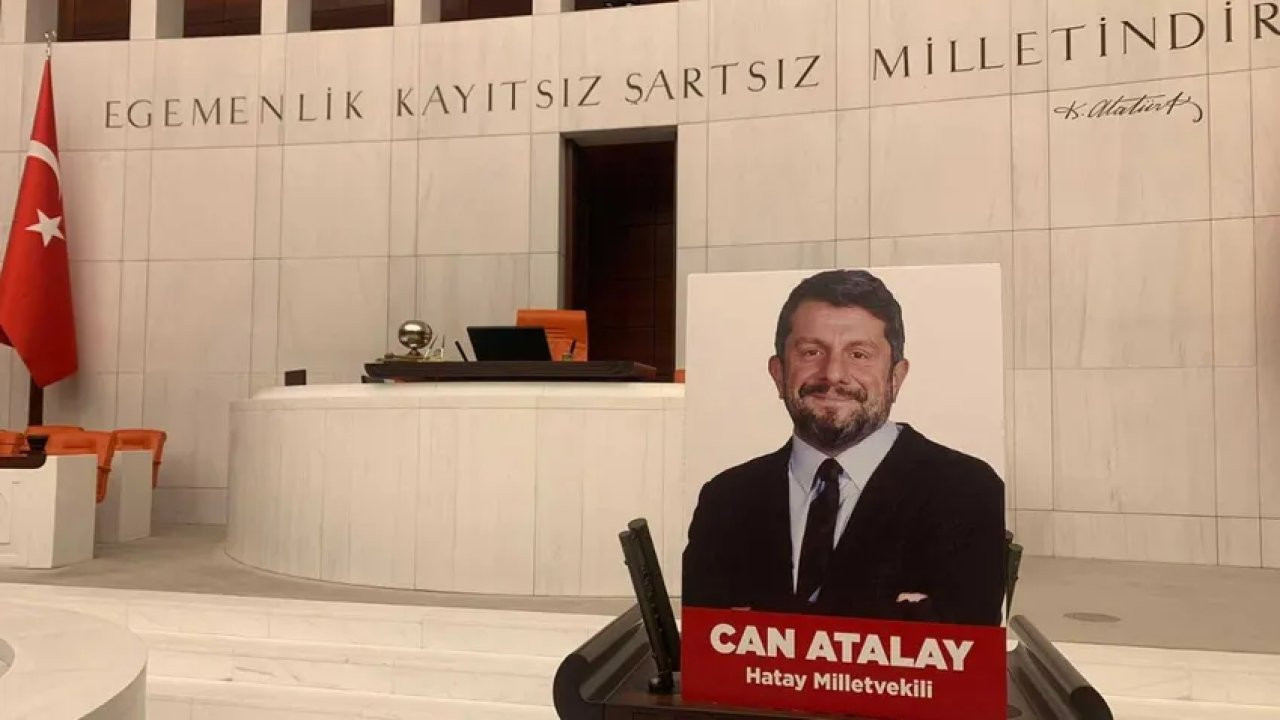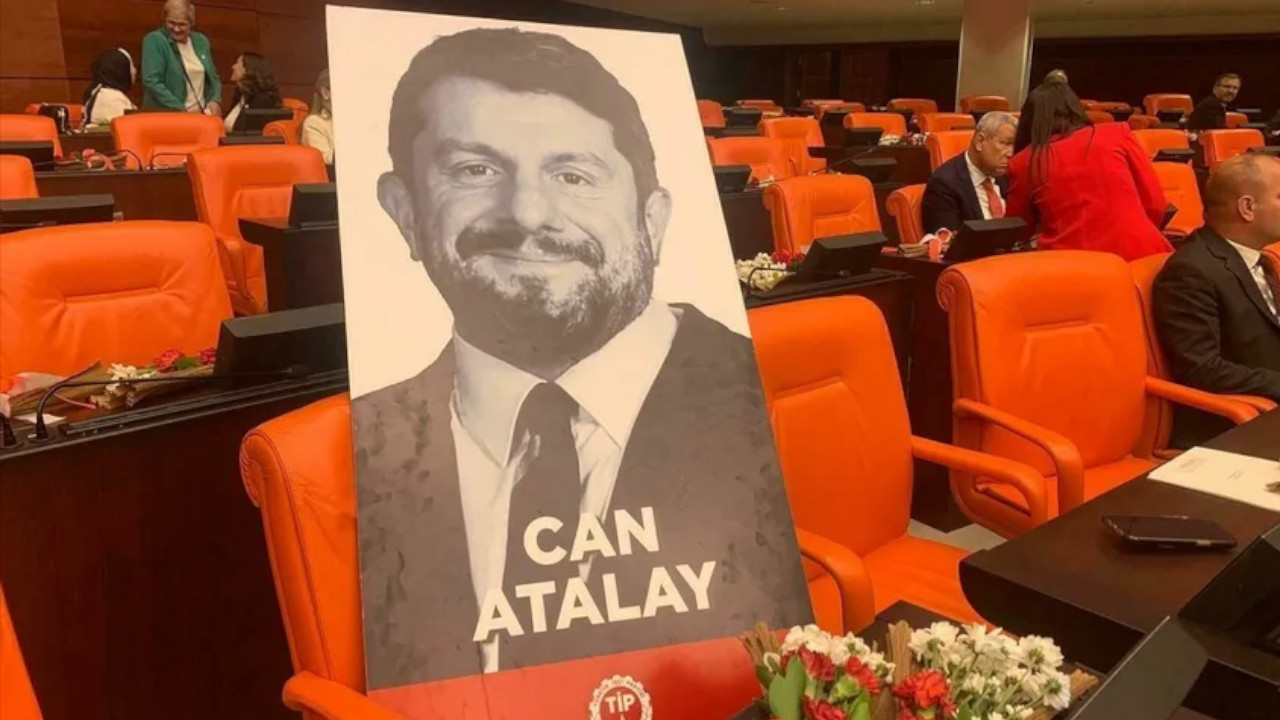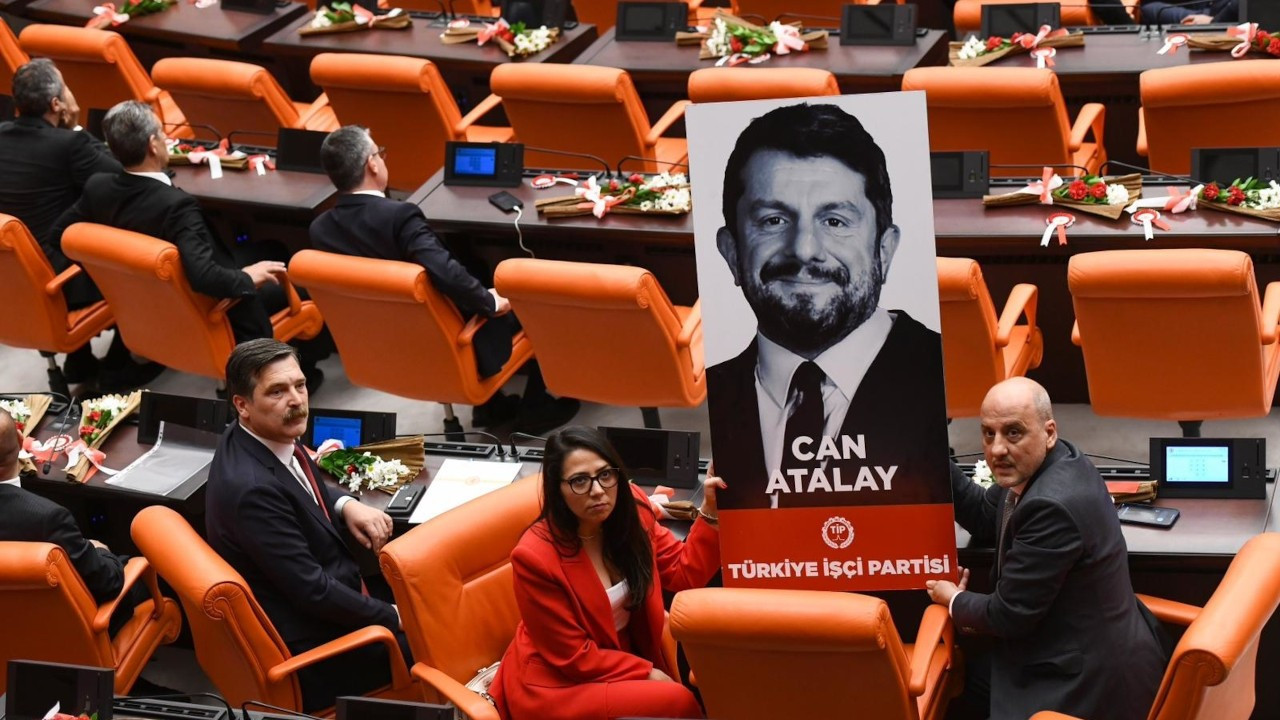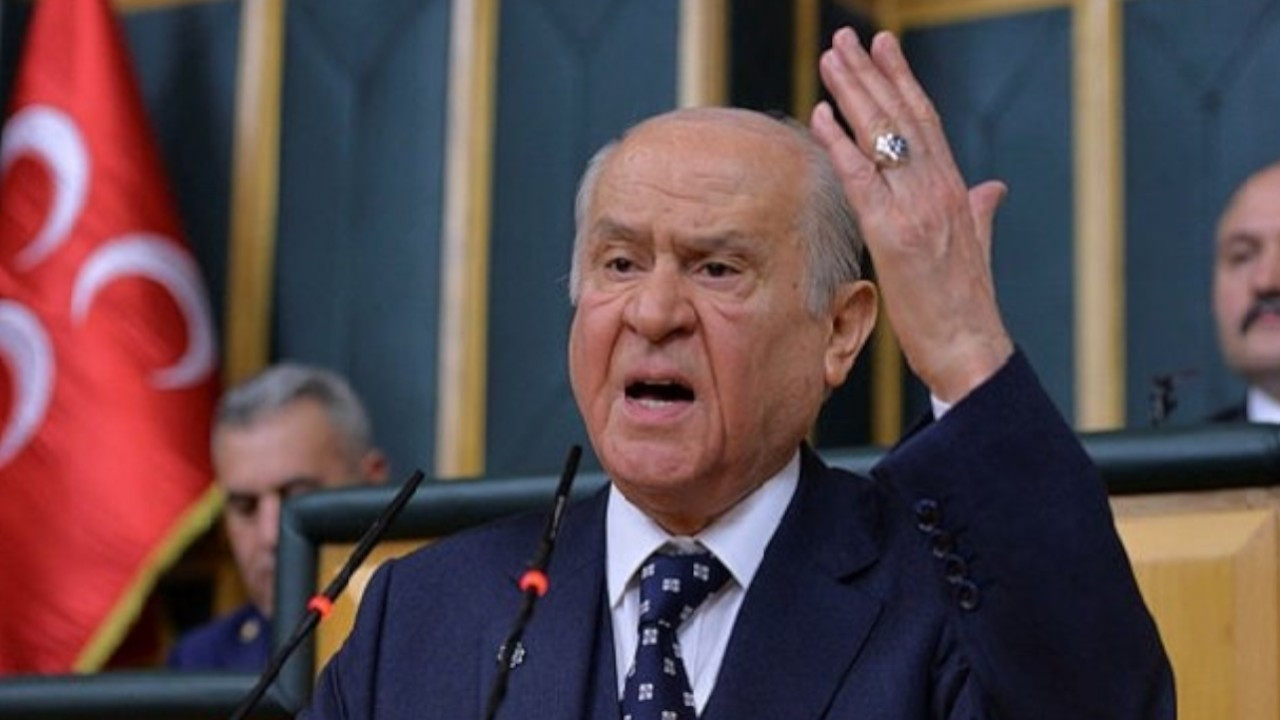Top Turkish appeals court files criminal complaint against Constitutional Court justices regarding MP Atalay ruling
In an unconstitutional move, Turkey’s Court of Cassation, top appeals court, refused to comply with the Constitutional Court’s (AYM) ruling regarding the release of jailed MP Atalay. The court also filed a criminal complaint against AYM justices regarding its ruling. The opposition parties and the Union of Turkish Bar Associations deemed the move a “judicial coup attempt.” Some ruling AKP executives also criticized the Court of Cassation’s ruling.
Duvar English
The 3rd Criminal Chamber of the Court of Cassation, top Turkish appeals court, on Nov. 8 refused to comply with the Constitutional Court (AYM) ruling regarding the release of jailed Workers’ Party of Turkey (TİP) deputy Can Atalay.
The court also filed a criminal complaint against AYM justices who voted for Atalay’s release, claiming they violated the constitution and exceeded their authorities.
The court claimed that the Constitutional Court did not have the authority to review the Atalay's case according to the constitution.
“In its violation decision regarding convict Şerafettin Can Atalay, the Constitutional Court, although it had no legal basis and was a controversial issue even in doctrine, talked about the ‘objective function of the decisions of the Constitutional Court’ and accused the members of the 3rd Criminal Chamber of the Court of Cassation of ‘committing the crime of negligence.’ The members of our Chamber, who have been constantly threatened by many terrorist organizations or their members through social media, written and visual media, or through petitions sent during first instance trials or appeals, have also been threatened by the Constitutional Court. The threat it made was also found to be regrettable and meaningful,” the court said in its ruling.
“In our country, the Constitutional Court does not only intervene in the sphere of the legislative body by merely annulling laws, it also sometimes acts as a legislator and acts as a tutelage authority as a super court of appeal over the higher courts, which do not have a superiority relationship according to the constitution,” it added.
Atalay was among the seven defendants who were sentenced to 18 years in prison in the Gezi Park trial. He was convicted for “assisting to the attempted abolishment of the government." Atalay was elected as a Hatay deputy from TİP in the May 14 general elections.
The court refused to comply with the AYM’s ruling regarding Atalay’s release and ordered the Parliament “to initiate the procedures for the removal of Şerafettin Can Atalay's deputyship.”
The AYM on Oct. 25 ruled that imprisoned TİP deputy Can Atalay’s "right to vote and be elected” and “right to personal security and liberty" were violated and ordered the lower court to release him. The Criminal Court of Istanbul did not release Atalay, but referred the case to the Court of Cassation, arguing the AYM’s ruling was not related to the criminal court’s verdict.
This week, Justice Minister Yılmaz Tunç argued the AYM “overstepped its jurisdiction” and attempted "to change the constitution” with the Atalay ruling.
‘Judicial coup attempt’
The experts and opposition parties deemed the Court of Cassation’s ruling a “judicial coup attempt.”
Honorary President of the Court of Cassation, Sami Selçuk, told Gazete Duvar that he could not “believe in such a decision, this cannot happen.”
“Everyone must comply with the decision of the Constitutional Court. The Constitutional Court is the competent authority on rights violations. If there is a violation of rights, the Constitutional Court will have the final say here,” Selçuk said, criticizing the Court of Cassation’s reasoning.
TİP head Erkan Baş reminded the 153rd Article of the Constitution, which read “The decisions of the Constitutional Court are final… Decisions of the Constitutional Court shall be published immediately in the Official Gazette, and shall be binding on the legislative, executive, and judicial organs, on the administrative authorities, and on persons and corporate bodies.”
Baş said the Court of Cassation’s ruling is a “clear attempt to violate the constitution” and a “coup attempt.”
“I call on all our citizens and all political parties to take a common stand against this parallel judicial coup attempt,” he added.
Yargıtay 3. Ceza Dairesinin, Anayasa’nın açık ve net hükmüne rağmen “AYM kararına uyulmaması” kararı alması açıkça anayasayı çiğneme girişimidir.
— Erkan BAŞ (@erkbas) November 8, 2023
Herhangi bir makamın, "Anayasa ve Anayasa Mahkemesi'ni tanımıyoruz" açıklaması yapması, üstelik Anayasaya ve yasalara uygun olarak… pic.twitter.com/sk9oqd711A
Main opposition Republican People’s Party’s (CHP) new leader Özgür Özel also deemed the ruling “a coup attempt against the constitutional order.”
“I called our (parliamentary) group to an extraordinary closed meeting on the latest developments in the judiciary. The developments cannot be underestimated or ignored. Beyond the crime of violating the constitution, this is an attempt to oppose the constitutional order. It should be suppressed immediately,” he said in a tweet.
Bugün saat 21.00'de Grubumuzu yargıdaki son gelişmeler üzerine olağanüstü kapalı toplantıya çağırdım.
— Özgür Özel (@eczozgurozel) November 8, 2023
Yaşanan gelişmeler hafife alınamaz, görmezden gelinemez.
Bu, anayasayı ihlal suçunun ötesinde anayasal düzene karşı kalkışma girişimidir. Derhal bastırılmalıdır.
“This is called a coup. There can be no other explanation for the Court of Cassation not recognizing the decision of the Constitutional Court and filing a criminal complaint against its members. This ruling is a coup against democracy and the rule of law and is never acceptable,” opposition Future Party leader Ahmet Davutoğlu said.
Bunun adı darbedir.
— Ahmet Davutoğlu (@Ahmet_Davutoglu) November 8, 2023
Yargıtay’ın Anayasa Mahkemesi kararını tanımayıp, üstüne hak ihlali kararı veren üyeler hakkında suç duyurusunda bulunmasının başka izahı olamaz.
Bu karar demokrasiye ve hukuk devletine darbedir, asla kabul edilemez.
The Union of Turkish Bar Associations (TBB) said the Court of Cassation’s ruling is “a clear rebellion against the Constitutional order,” and they will apply to the High Disciplinary Board of the Court of Cassation, requesting the dismissals of “members who ignore the constitution.”
Bu karar Anayasal düzene karşı açık bir başkaldırıdır
— Türkiye Barolar Birliği (@barolar) November 8, 2023
👉 https://t.co/OnUs3MFMYl pic.twitter.com/4qeVGRqmZU
Even some ruling Justice and Development Party (AKP) executives criticized the ruling.
AKP Deputy Chair, and Political and Legal Affairs Chair Hayati Yazıcı said “We are experiencing such an event that should never, ever happen. What a pity. The powers that make up the state solve problems. They never create problems, they can’t. They cannot block each other.”
Öyle olaylar olur ki, analiz yapmak için, konuşsan da konuşmasan da sorun olur. Hiç ve asla olmaması gereken öylesi bir olay yaşıyoruz. Yazık, çok yazık. Devleti oluşturan erkler, sorun çözümler. Asla sorun üretmez, üretemez. Birbirini çelmeleyemez.
— Hayati Yazıcı (@Hayati_Yazici) November 8, 2023
Former Justice Minister and AKP Group Deputy Chair Abdülhamit Gül said the conflict between higher judicial authorities "is worrying."
"The judiciary solves the problems. If the judiciary loses its qualification as an arbiter, it becomes the source of problems and conflicts, not solutions. It is essential for every institution to exercise its authority and function, which derives from the nation, within the framework of the law. It is our nation's most natural expectation that the judicial bodies will solve problems within constitutional boundaries without deepening disputes," he said.
Yüksek yargı mercileri arasındaki çatışma görüntüsü, hukuk devleti ve mülkün temelinde yer alan adalet duygusu için endişe vericidir.
— Abdulhamit Gül (@abdulhamitgul) November 8, 2023
Yargı hakemdir, sorunları çözer. Yargı hakem olma vasfını yitirirse, çözümün değil sorun ve çatışmanın kaynağı haline gelir.
Her kurumun…
“Criticizing and finding the decision of the Constitutional Court wrong is one thing, disobeying the decision is another. You can criticize it, find it wrong, but you cannot disobey. The constitutional provision is clear and the decision is binding. The Court of Cassation’s ruling is not legal. The criminal complaint against the members of the Constitutional Court is (even more) strange,” former AKP deputy Şamil Tayyar said.
AYM’nin kararını eleştirmek/yanlış bulmak ayrı, karara uymamak ayrıdır.
— Şamil Tayyar (@samiltayyar27) November 8, 2023
Eleştirebilir, yanlış bulabilirsiniz ama uymamazlık edemezsiniz. Anayasa hükmü açık, karar bağlayıcıdır.
Yargıtay 3.Ceza Dairesi’nin AYM kararına ‘uymama’ iradesi, hukuki değildir.
Kaldı ki AYM’nin benzer…
Investigations of the Constitutional Court members
The investigation against AYM members is carried out by the decision of the Constitutional Court General Assembly, which has a total of 15 members. At least 10 members are required for the General Assembly to convene. However, nine members ruled that Can Atalay’s imprisonment was a “violation of rights.”
This means that the Court of Cassation’s complaint covers nine members out of 15. According to the law, members against whom a criminal complaint has been filed cannot attend the General Assembly session regarding the issue. In this case, there are six members left to attend the General Assembly. It is therefore unclear how the General Assembly will convene under these circumstances, Asuman Aranca from the online news outlet T24 reported.
MHP leader Bahçeli and the Constitutional Court
President Recep Tayyip Erdoğan’s ally, far-right Nationalist Movement Party (MHP) leader Devlet Bahçeli on several occasions demanded the closure of the AYM for not closing down the pro-Kurdish Peoples’ Democratic Party (HDP).
Bahçeli even deemed the top court “the backyard of the separatist terrorist organization.”
In March, Bahçeli stated that the first thing that the ruling People’s Alliance (“Cumhur İttifakı”) will do after the elections would be changing the constitution in order to “eliminate traitors in the Constitutional Court.”
With this new judicial crisis, the government is said to will propose a change in the structure of the Constitutional Court as the preparation is ongoing for a new constitutional draft.

 Top Turkish prosecutor accuses Constitutional Court of violating separation of power with MP Atalay rulingDomestic
Top Turkish prosecutor accuses Constitutional Court of violating separation of power with MP Atalay rulingDomestic Constitutional Court tries to change constitution with MP Atalay ruling, Turkish justice minister saysDomestic
Constitutional Court tries to change constitution with MP Atalay ruling, Turkish justice minister saysDomestic Turkish court refers imprisoned MP Atalay’s case to appeals court, defers his releaseHuman Rights
Turkish court refers imprisoned MP Atalay’s case to appeals court, defers his releaseHuman Rights Turkey's Constitutional Court finds rights violation in MP Atalay's ongoing imprisonmentPolitics
Turkey's Constitutional Court finds rights violation in MP Atalay's ongoing imprisonmentPolitics Turkish nationalist party leader demands closure of Constitutional Court for returning HDP indictmentPolitics
Turkish nationalist party leader demands closure of Constitutional Court for returning HDP indictmentPolitics